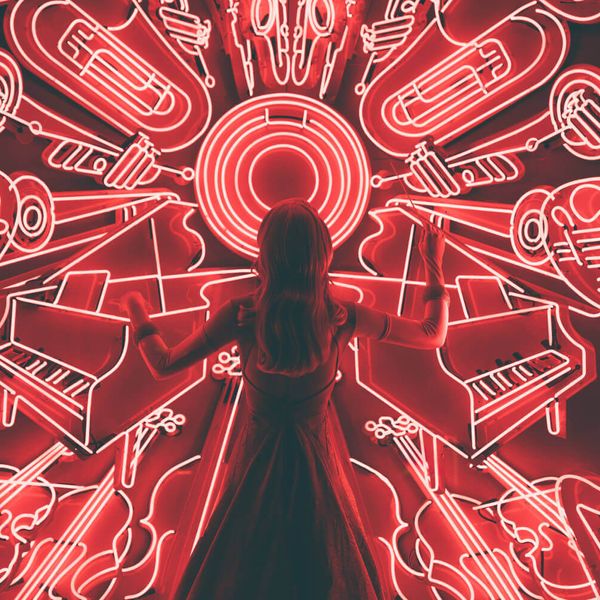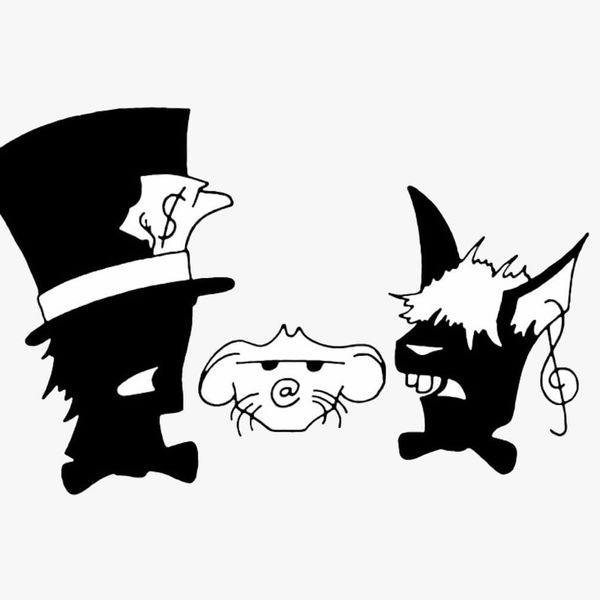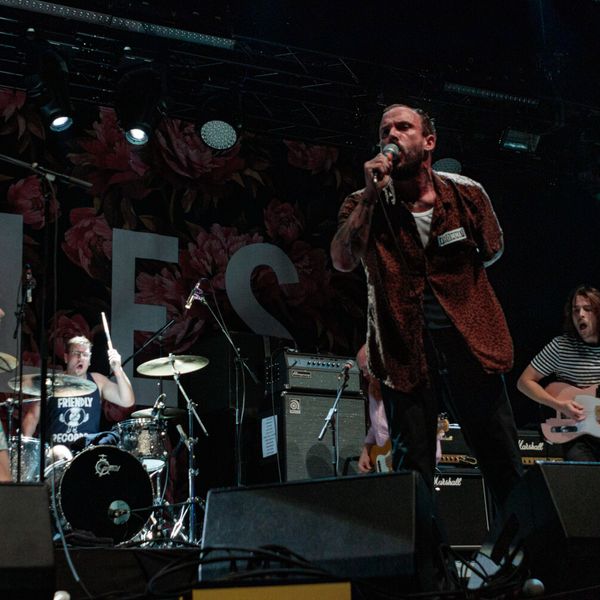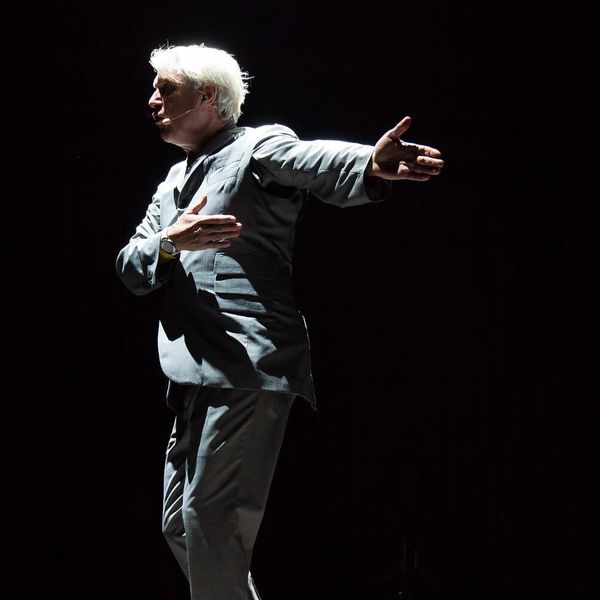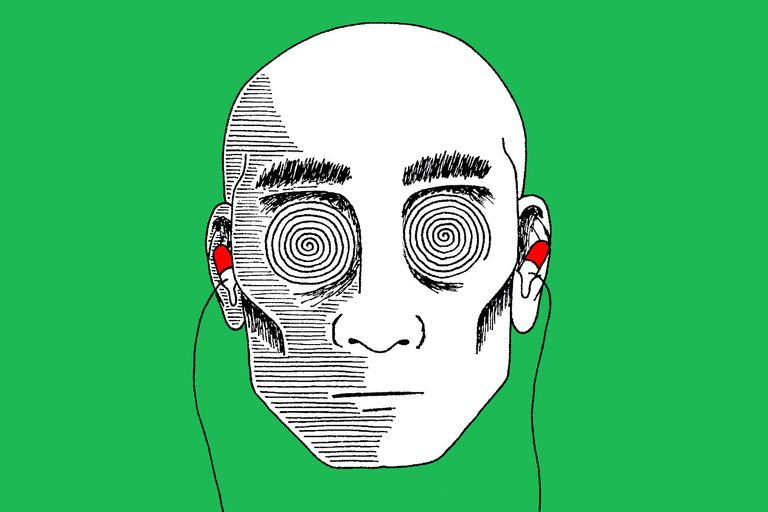
In 2012 David Byrne asked whether music had become a ‘soma-like drug,’ a kind of emotional medication. He was referring to Aldous Huxley’s dystopian 1932 novel Brave New World, in which soma subdues society’s passions and keeps people apart. Faced with the rise of digital distribution and personal audio players, Byrne saw a similar fate awaiting music.
Streaming services like Spotify were in their infancy at the time. Now they dominate the music industry, and Byrne’s concerns are more relevant than ever. Technology has revolutionised music consumption. Exploring the new terrain through the lens of Brave New World can help us guard against missteps. Now more than ever music is treated like a drug. If we are not careful, we risk becoming dependent.
In Huxley’s novel soma is a government-issued drug. It is the lubricant of Brave New World’s docile society, offering concentrated, controllable doses of instant gratification. It calms the angry and appeases potential upstarts. ‘Take a holiday from reality whenever you like, and come back without so much as a headache or a mythology.’ Taken in moderation it sounds like the perfect drug: ‘Euphoric, narcotic, pleasantly hallucinant.’ Indeed, that’s the idea. Citizens can pop pills and drift away for an hour, a lifetime, however long is needed to forget the strains of everyday life.
Eighty years after Brave New World was published, David Byrne — of Talking Heads and big suit fame — compared Huxley’s drug to music listening habits in the digital age. In his book How Music Works he wrote:
‘In Brave New World, Aldous Huxley imagined a drug called soma that blissed everyone out. It was like taking a holiday, and you could regulate the length of the holiday by the dosage. Has technology turned music into a soma-like drug? Is it a pill you take that is guaranteed to generate a desired emotion — bliss, anger, tranquility?’
This was in 2012, when services like Spotify were in their infancy. At the time Byrne was more concerned about MP3 players. He was wary of lonely listening: ‘Private listening could be viewed as the height of narcissism — these devices usually exclude everyone else from the experience of enjoying music.’
Today streaming accounts for over 75% of music industry revenue. There are over 370 million mood playlist listeners, and that number increases by the day. That’s hundreds of millions of listeners with bottomless supplies of emotional supplements in their back pockets.
Music streaming, fronted by Spotify, has grown astronomically in recent years. It is the most popular method of listening to music. Practically any song we want is seconds away, ready to transport us wherever we please.
This is, of course, largely an enormous privilege, another endless resource of the Information Age. But like any frontier space there is room for misbehaviour. The format’s immediacy echoes that of soma:
‘… if ever, by some unlucky chance, anything unpleasant should somehow happen, why, there’s always soma to give you a holiday from the facts. And there’s always soma to calm your anger, to reconcile you to your enemies, to make you patient and long-suffering. In the past you could only accomplish these things by making a great effort and after years of hard moral training.’
Music is a cathartic medium. Through it we find shared experiences, common goals, an assurance that our feelings are not unusual. That’s not all music is, but that’s a large part of it. Who of us hasn’t turned to music to soothe anger or nurse a bruised heart? Who of us hasn’t been on a Spotify holiday?
Byrne’s concerns stemmed from the idea that music could be treated as a kind of supplement, a drug with which we banish turbulent thoughts and feelings at three minutes a hit. As the Controller says, we leave mess behind. ‘What suffocating intimacies, what dangerous, insane, obscene relationships’ we shed. The poor schmucks of the past ‘were forced to feel strongly.’ Now we can drown out the voices before they even become a whisper.
As with soma, this is made possible by the immediate gratification music streaming services allow. The controllers of Brave New World knew this well. ‘Feeling lurks in that interval of time between desire and consummation.’ Tension gives rise to action, be it destructive or constructive, but Spotify limits the opportunity for that process to play out.
There was a time when access to music was limited. Bob Dylan had to travel for years to hear the music that lured him out of himself. Nowadays no time need pass between a feeling and the ‘treatment’ of that feeling by music. Sad? Whack on the ‘Sad’ playlist. Got a crush? Four hours of ‘1980s Love Songs’ await. In Brave New World a riot is quelled with a ‘portable Synthetic Music Box.’ Today all we need is an iPod. And what’s worse, we do it to ourselves.
As with the stupor of opium, soma is an insular experience. The only communal purpose it serves is in helping people tolerate their lot — and each other. It serves the mood of the individual. So too with music, and the rise of playlists reflects that. Playlists surpassed albums in popularity in 2016. Spotify literally has playlists that cater to generic moods. Here lies a dose of melancholy, there of adventure. It has even started to learn the moods of its listeners based on listening habits.
Dependency is valuable. Get too used to holidays and one comes to rely on them. Three grammes of soma can send you ‘for a dark eternity on the moon.’ Is that so different to a trip to the Dark Side of the Moon? The result is the same. Need a tranquilliser? Hallucinogens? Stimulants? Whatever you like, it’s in the bottle somewhere. A dose of Spotify a day keeps the blues away.
The other key aspect of modern music consumption forewarned by Brave New World is the disposability of the artist. Authorship is unimportant. Music in Brave New World is a science, not an art. At one point the book describes London’s Bureaux of Propaganda by Synthetic Voice and Music. ‘Above were the research laboratories and the padded rooms in which Sound-Track Writers and Synthetic Composers did their delicate work.’ Not so outlandish in a time when Spotify is developing AI that composes music.
Feeling is much more important than meaning in Brave New World. Meaning gives rise to questions of meaninglessness, which are again inconvenient. As Huxley puts it, music in Brave New World appeals not to the mind but the ‘bowels of compassion.’
Weighed against Huxley’s world, one wonders whether the endgame of Spotify and services like it is mediocrity. Revisited for a time turns its attention to the art of selling. There Huxley summarises the threat most succinctly. ‘There are no masterpieces; for masterpieces appeal only to a limited audience,’ he writes. ‘The ideal is a moderate excellence.’
For music to be used reliably as a ‘soma-like drug’ it must be predictable, prescribable. Look again to the mood playlists that dominate Spotify listening habits. Are they polished? Professional? Fit for purpose? Sure. Few would argue otherwise. But masterpieces? The very idea seems silly, like a Michelin Star buffet.
In Revisited Huxley muses that ‘the twenty-first century, I suppose, will be the era of World Controllers,’ of social engineers. As more and more people fall under the Spotify spell, one can’t help but wonder if much of music risks meeting a similar fate. The adventure of discovery can give way to the convenience of weekly deliveries, and when things don’t feel quite right, the ‘Unhappy’ playlist is just a click away.
Has modern technology made it easier to consume music in ways analogous to soma? Yes. has technologreally turned music into a soma-like drug? In some ways. Music means different things to different people. It is not my place — or anyone else’s — to say what music should or should not be. That is one of its many beauties. Relying on art is not the same as relying on a drug, not that there is an inherent vice to either. You’d be hard-pressed to find someone who thought the printing press turned literature into ‘a soma-like drug,’ or that widely available canvases have wreaked havoc on society.
But changing times do call for a certain amount of vigilance. We are at the beginning of a new age. Spotify, for all its potential, does at times seem destined to suffocate the wilder fringes of music consumption — to make good on David Byrne’s worries. As millions of listeners make their way through the world with earbuds in and music blasting, one can be forgiven for thinking Aldous Huxley’s soma holidays are alive and well.
